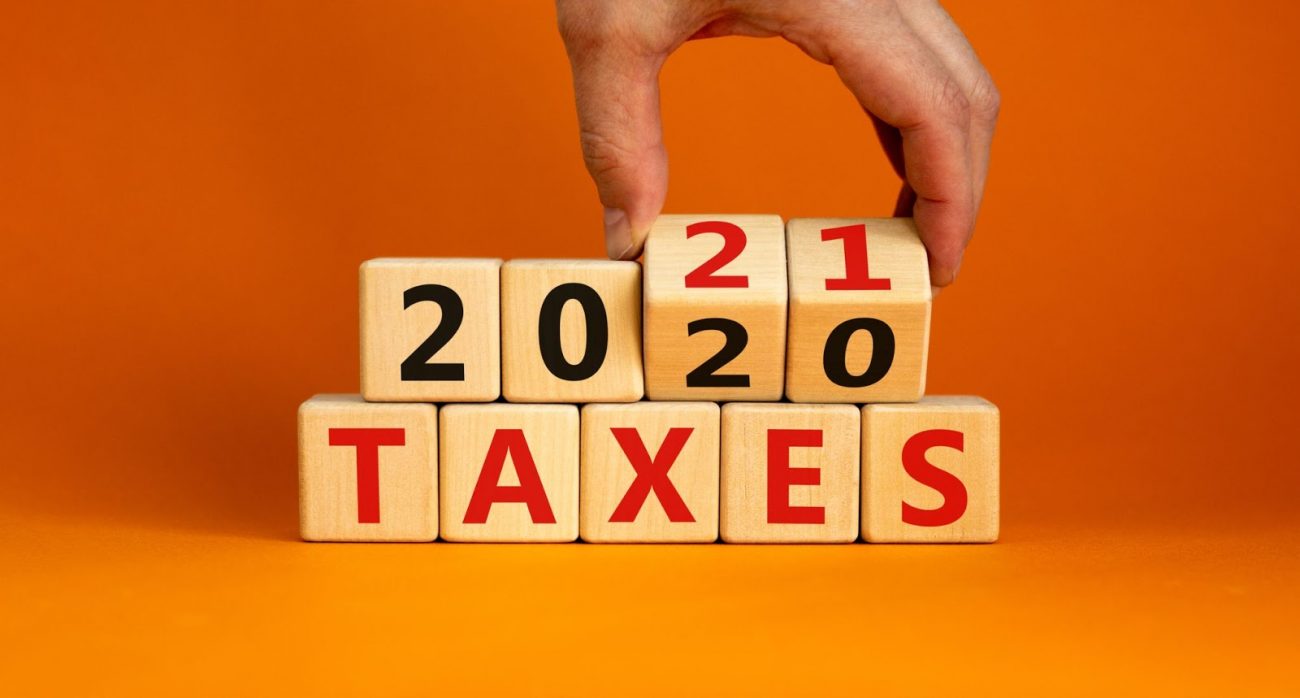
Get a Jump Start On Next Year’s Taxes
Yes, we realize that folks in Greeneville, Tennessee probably haven’t filed their 2020 taxes yet (The 2021 filing deadline is May 17, 2021) – and maybe the last thing you want to do is think more taxes! But the fact is, the more planning you do, the easier taxes become. Right now is an ideal time to get a jump start on tax planning for next year’s taxes.
The goal of tax planning in Greeneville, Tennessee, of course, is to optimize your tax situation. You want to pay the lowest amount you can, using all available strategies, such as deductions and credits. You want to pay as little taxes as possible.
In addition, of course, you want to use your money wisely throughout the year. If you received a large tax refund, that might feel great. But the fact is, a very large refund might be a sign of poor planning.
It’s more prudent to keep the money rather than, essentially, giving it to the government and then having them give it back. That’s what a refund is. You can undoubtedly invest the money more wisely if you don’t give it to the government in the first place.
So how can you plan for next year’s taxes? Here are some Greeneville, Tennessee tax tips:
1. Keep tax records throughout the year
One of the reasons tax season is very daunting for many people is that it requires combing through records of such things as receipts, looking for potential deductions and credits.
Instead of facing the task of combing through your records, keep them on an ongoing basis. If you give to charity, for example, put the records of your contributions in a clearly marked file, because charitable deductions are tax-deductible. Do these for all potential deductions or credits, both for personal and business reasons.
Even better, place them in digital files rather than physical ones. It’s easy enough to scan any records that might be relevant. Plus, many financial records, such as reinvested dividends and capital gains or losses for the year, are likely already provided electronically (if you agree to a paperless version).
The advantage? A digital record can be pulled up from your computer at any time. No more searching for your physical tax files or finding a place for them!
Let’s Discuss Ways You Can Prepare For Retirement. Contact Sapiat Asset Management Today!
2. Know what records to keep
Okay, now that we’ve made keeping records steadily a priority, it helps to have a statement of which records to keep. Again, anything that might help you optimize your taxes. If in doubt, keep it; it’s easier to toss it if not needed than to find it if you do.
Here’s a brief overview of the most common deductions.
- Retirement account contributions – Your contributions to traditional individual retirement accounts (IRA) may be tax-deductible up to $6,000 for 2021 ($7,000 if you’re 50 or older). If you contribute to a 401(k), the contributions are taken pre-tax, and it’s wise to keep a record. You can contribute up to $19,500 in a 401(k), which rises to $26,000 if you’re 50 and over. All yearly growth in both traditional and Roth retirement accounts, whether from dividend investment or capital gains, is tax-free.
- Medical expenses – Folks who itemize deductions can deduct all medical expenses which exceed 7.5 percent of their adjusted gross income (AGI). In other words, all bills for doctor services, hospitalization, prescription medication, diagnostic tests, assistive devices, and more are potentially deductible. Health insurance premiums you pay are also deductible if you itemize. Don’t forget to keep a record of any travel to and from medical appointments – that’s considered part of your medical expense, at a certain amount per mile.
- Investment records – Remember, all capital gains and losses outside of retirement accounts are subject to taxation. You must pay taxes on capital gains. But it’s important to realize that any losses for the year can be used to offset the capital gains. In other words, keep all records of stock market gains and losses. You also need to report all dividends, as these are also taxed.
- Mortgage interest – if you have a mortgage, the interest is deductible on up to $750,000 of property.
- Property tax – property tax and other state and local tax is deductible up to $10,000.
- Charitable contributions –contributions to qualified charitable organizations are always tax-deductible, but the amounts have actually changed due to the COVID epidemic, as a result of the Coronavirus Aid, Relief, and Economic Security (CARES) Act. If you itemize, you can actually take up to 100 percent of your AGI in charitable deductions. If you don’t itemize (or find your itemized deductions don’t exceed the standard deduction for next year), you can still deduct up to $300 in charitable contributions each year.
Other Important Records
If you work for an organization, you’ll of course receive a W-2 early in 2022. Be sure to keep it.
If you’re self-employed, the organizations for which you’ve worked will send you 1099s as tax records. (You will also receive 1099s for all stock dividends.)
If you receive unemployment benefits during 2021, you will also receive a 1099 from your state for the amount of benefits. A portion of these are taxable.
If you’re self-employed or a business owner, keep all records of potential deductions, including capital equipment expenses and payments, travel expenses, raw material expenditures, cost(s) of doing business, professional association memberships, and more.
If you worked at home in a dedicated office space (i.e., used only for work), you may be entitled to a home office deduction. If you are, you may be able to deduct a fraction of your expenses for utilities, water, internet provision, telephones (if you work on the phone), and more. Keep all records to discuss with a tax professional.
Steps to Lower Your Taxes
If you received a large refund, it may be advisable to review your withholding status, so you receive more throughout the year.
Maximizing your retirement account contribution is one of the best ways to lower your taxable income.
If you are eligible for a Flexible Spending Account (FSA) or Health Savings Account (HSA), contributions are tax-advantaged. Any contributions are taken out pretax, so will lower your overall taxable income and may lower your tax bracket.
The Standard Deduction Will Increase for 2021
The standard deduction for 2020 is $12,400 for single filers and $24,800 for those married and filing jointly.
It is going up slightly next year, however. For all of taxable 2021, the amount for single filers is $12,500 and for married filing jointly folks is $25,100.
In addition, you may be eligible for an additional $1,300 in standard deduction amounts if you are over 65 ($1,650 for single filers).
Taxes are complicated! In addition to keeping good records and knowing what may be deductible, work with a fee-based CERTIFIED FINANCIAL PLANNER™ Professional. A CERTIFIED FINANCIAL PLANNER™ Professional is required to have both experience and education in tax matters. A CERTIFIED FINANCIAL PLANNER™ Professional can provide comprehensive financial planning that will help you minimize taxes.
At Sapiat Asset Management, we use a personalized process to identify the financial planning and tax mitigation strategies that meet the needs of our clients. Our knowledge of your financial situation is a big part of the foundation that drives our relationship with you. Contact us today for a complimentary consultation.

